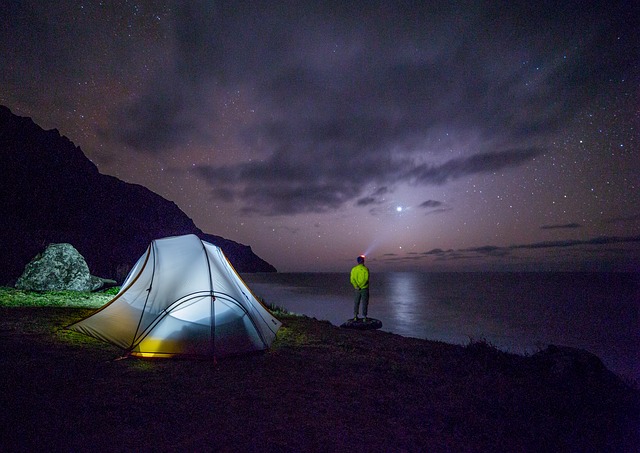Good news for those who love the outdoors – spending a weekend camping outside resets the human “body clock” that determines sleeping habits, scientists say.
Researchers from the University of Colorado Boulder say that time spent outdoors could help those who have difficulty getting up in the morning, and improve overall health, the BBC reports. But, taking time to sleep in a tent is ultimately no a long-term solution, they caution.
The human body has a daily “circadian” rhythm that anticipates day and night, in order to manage when people do things, such as sleep. Exposing that clock to more bright light in the day, and less at night, could be a good thing. This changes alertness levels, mood, physical strength, time of sleep and even contributes to the cardiovascular disease risks as part of a 24-hour cycle.
Light helps the body clock, but the pace of modern life combined with artificial lights, alarm clocks and smartphones have drastically altered sleeping habits as a whole. Dr. Kenneth Wright, one of the study authors, said,
We’re waking up at a time when our circadian clock says we should still be asleep.
This, he added, is damaging to the health as poor sleep habits have been linked to type 2 diabetes, obesity and mood disorders. Also, not getting enough sleep simply makes people groggy and inattentive in the morning.
Dr. Wright and a team organized a series of camping experiences for a small group of volunteers during winter. The participants wore special watches that recorded light levels, and had their blood tested to examine the levels of the sleep hormone melatonin in their bodies.
The only artificial light the group was allowed came from a campfire. Even flashlights were prohibited.
The researchers found that on the week-long camping trip, people are exposed to 13 times more light at home, even during the darkest time of the year. The level of melatonin in the participants also began to climb two and a half hours than before the camping trip, and they went to bed earlier, too.
At the end of it, the campers were sleeping and waking up according to their body clocks. Another camping expedition showed significant benefit from just a weekend outdoors.
Wright said, “We’re not saying camping is the answer here, but we can introduce more natural light to modern life. It is something we as a society can regulate without people having to change behaviors.”
Natural light is the answer, he added. Homes, offices and schools should be designed to let in more natural light, and people would need to go for a walk before work or cut down on using artificial light at night, in order for the camping effects to last.
The study was published in Current Biology.
























